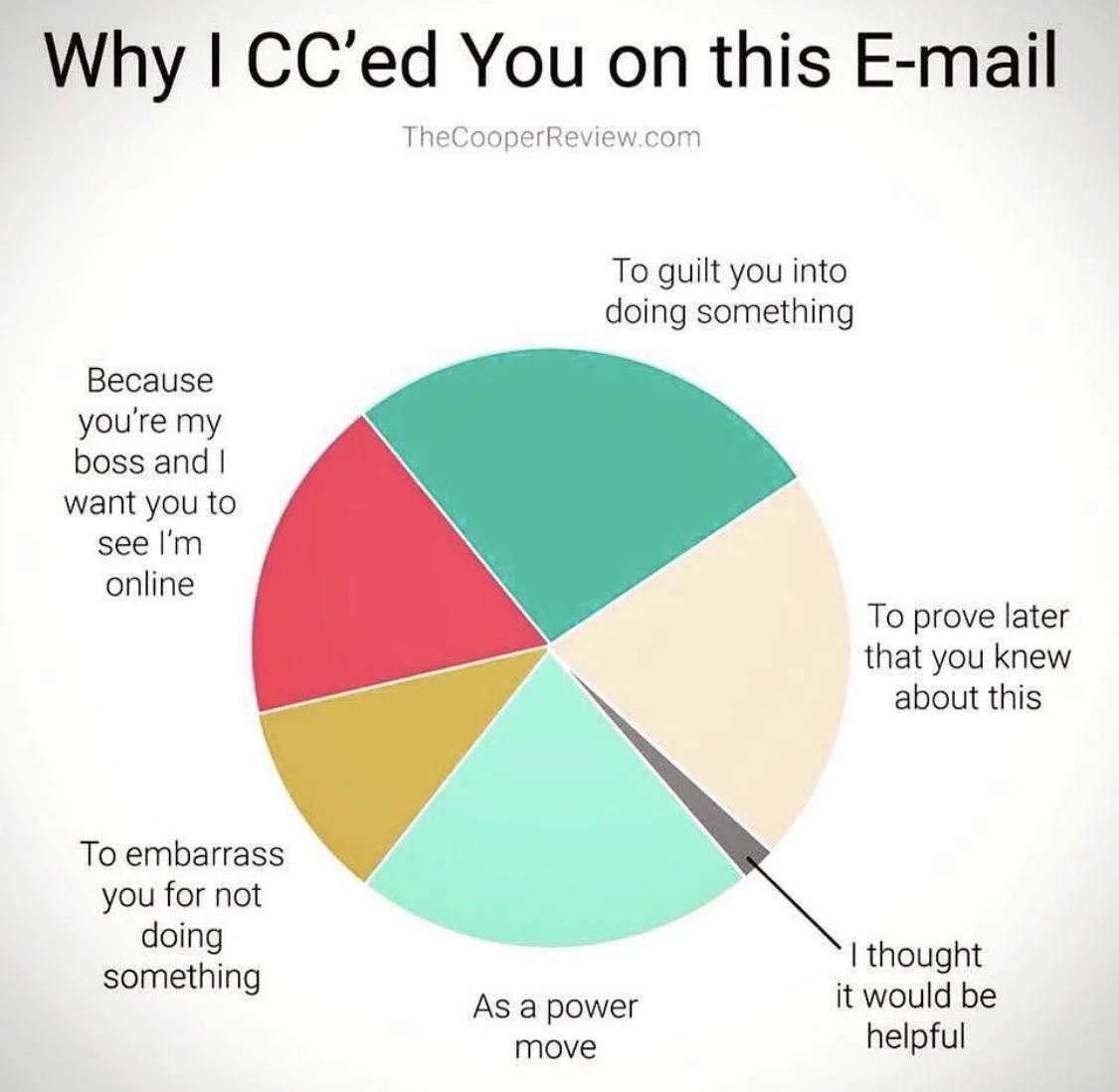We have all had an inefficient office manager we can’t stand or that girl always passing around mysterious homemade dishes at the office. This blog post is about 5 actionable methods you can apply to navigate corporate culture, learn how to properly pick your battles and keep your sense of humor. After working in Denver, Silicon Valley and now Los Angeles I have had my fair share of trying office interactions, from inappropriate bosses to that one coworker who is the constant bottleneck to task completion. I think it is important to always maintain perspective in these situations because whatever snarky email feels good to send in the moment could have lasting effects on your career.
1. Capitalize on being “new”
From starting various new positions at everything from app startups to marketing agencies, I have learned its critical to capitalize on being the new person at the company. This short time, while ramping up, is a great opportunity to identify inefficiencies when they occur and to use your fresh eyes to identify potential personality conflicts, office allies and where all the good snacks are.
If you are a Type A, ready to hit the ground running type like myself this can be hard. You have to fight the urge to try and figure everything out at once. In my current position I made a conscious effort to let my position evolve naturally despite how unnatural it felt.
2. Dealing with the Human bottleneck
As I mentioned in method 1, being patient is not easy. When an inefficient person owns critical elements of what you need to do your job, your ability to communicate, document everything and make the appropriate moves is critical.
When I started my current position I ordered (prior to my start date) all the typical supplies that aid you in getting things done, additional monitor, mouse, ball chair etc. Being that it is 2018, most offices have amazon prime accounts which means things will show up with in 2 -3 days at most. As week 2 of my employment rolled around, after various check ins on the status of the supplies order, the office manager made it clear that she did not care when or whether or not I received the things I needed despite giving off the opposite impression during the onboarding process.
There are a couple ways to deal with this type of person. Escalate, tell your boss you do not have what you need. Now this approach can be a simple solve or backfire depending on your boss’s personality type, you can come off high maintenance whether or not it’s true. The second method making sure to only check in on status in writing, whether its office chat, email etc even if she sits right next to you. This will allow you to cash in on the plausible deniability that I mentioned above, if you don't have what you need, despite following up, it will be clear to your boss that they must intervene on your behalf thus saving you from an unwanted confrontation.
3. Yes, Susan has you fucked up!
We have all opened an email or went to a meeting that immediately made our blood boil. One of my most recent experiences goes like this. I was working at a young, start up marketing agency, as a media manager of 10 junior media buyers. My boss was younger and more inexperienced than me and the entire company culture was immature. We had an ongoing issue with one of the junior staff members disrespecting the clients and management. As her manager, I sought out my boss’ guidance on how to properly communicate to her that workplace conduct rules were being enforced and she would have to follow suit. After weeks of getting nowhere with this employee, my boss agreed we should write her up. Immediately following this conversation, I was called into a meeting with HR, the COO and my boss where he proceeded to throw me under the bus despite our numerous documented conversations. The net of this interaction was that someone who manages a large media spend account can do whatever they want regardless of how unprofessional.
I learned a lot from this experience, first and foremost that I did not want to work for a company that condones and therefore encourages bad behavior. First and foremost, Always breathe before you clapback in an email, why? because writing lasts forever and feelings don’t.
Take 10 seconds and think, if I “Per my last email” this person or cc their boss will it get the desired outcome or just make me feel good? During the above story it became very clear that my boss was not to be trusted, which to me was all I needed to know. I could have escalated his behavior to executive management and risked alienating myself but I chose to leave the company instead. So who is the real winner?
4. This is Chess not Checkers
Communication is critical in any working environment but particularly important within corporate teams. Whether you are a seasoned professional or just starting your career you have to learn that getting along with everyone will not always happen but navigating office disagreements properly will set you up for long term success.
Invest in getting to know and understanding your coworkers but more importantly your boss’ triggers. Knowing when and where to push is key. Things like operational inefficiency are supremely important to some while others just care about performance. Find out what matters to the people you interact with most so that you can utilize those insights when seeking out resources to solve problems.
5. Be able to Work Anywhere
Personality conflicts and lack of empathy I feel are some of the most common causes of conflict in the office. Someone’s perception of you, your position or some other factor completely unbeknownst to you typically colors the interactions you have with that person. A good rule of thumb is to try and see the issue or problem at hand from the other person's perspective. That seems obvious but I have often solved problems that could have easily escalated between coworkers by simply acknowledging what they were both experiencing. Having empathy for someone you don’t know well or even care about is essential to creating office allies that will do the same for you when it’s your turn to be considered. Basically, be able to do more and go further.
Let me be clear, this does not mean you are friends or that you should expect to people to treat you as you would treat them. Dealing with people you are forced to interact with because of the context of work means you have to keep your eyes open and remember these are typically not personal intimate relationships, they are people you must coexist with to achieve an objective and if you remember that you can work anywhere. If you are lucky enough, as I have been, you’ll meet a couple gems along the way that turn out to be great friends.
I would love to hear about your workplace stories and thoughts on this blog post in the comments or by email.
Don’t forget to subscribe below!





